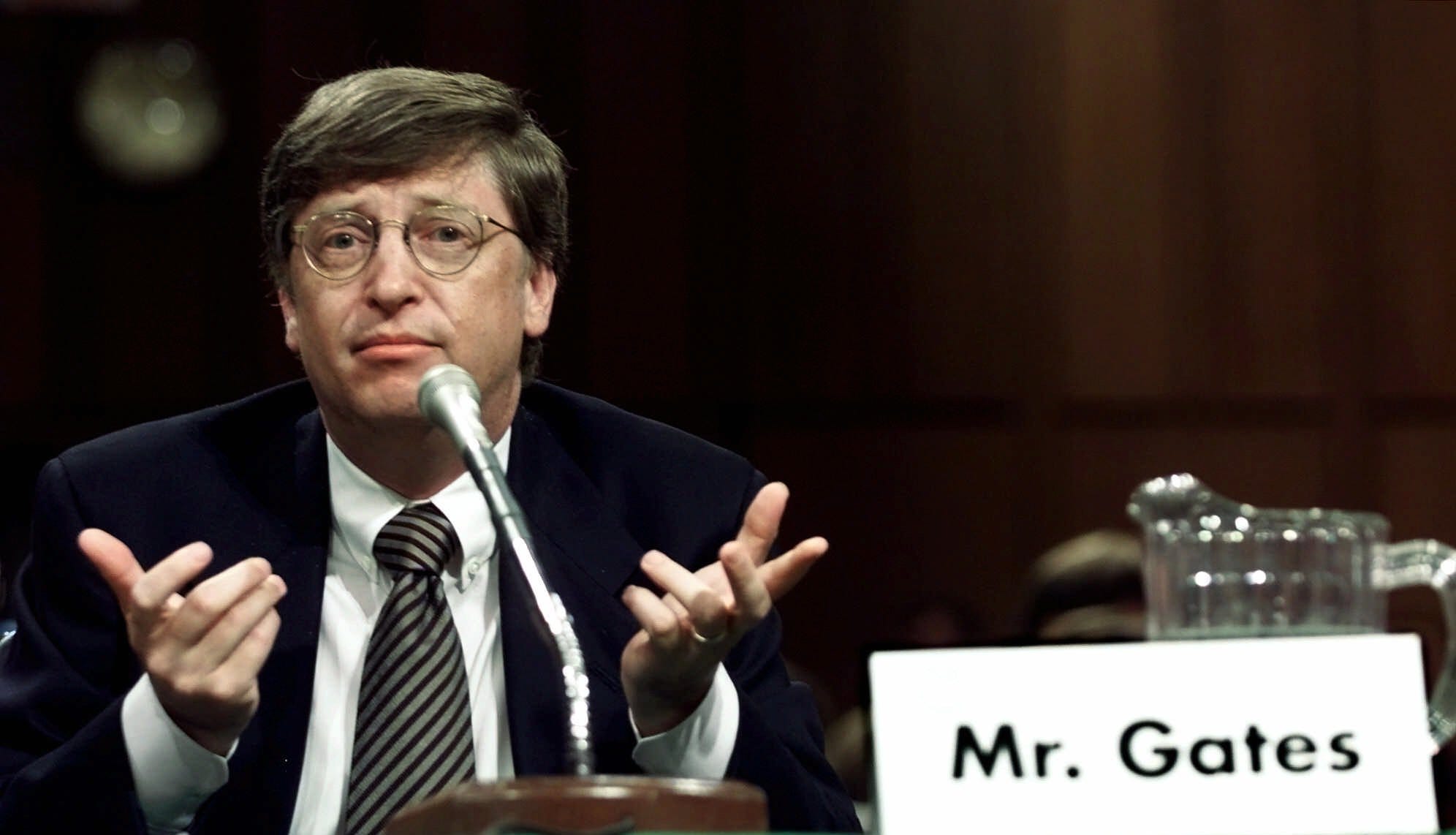- Ahead of Wednesday’s blockbuster tech antitrust hearing, Bill Gates reflected on his own 1998 congressional hearing during an interview with CNBC on Tuesday.
- “It certainly reminds me of when I went in front of Congress,” Gates told CNBC’s Andrew Ross Sorkin. “I wish them well.”
- Gates, along with his industry peers, testified before Congress in March 1998 about whether Microsoft was abusing its market power in the software industry.
- Soon after the hearing, the Department of Justice sued Microsoft for violating the Sherman Antitrust Act. Though a judge initially ordered the company to be broken up, Microsoft eventually settled with the court.
- Visit Business Insider’s homepage for more stories.
This week’s blockbuster tech antitrust hearing is causing Microsoft cofounder Bill Gates to reminisce about his grilling in front of Congress in 1998.
Gates appeared on CNBC’s “Squawk Box” on Tuesday, where host Andrew Ross Sorkin asked about how social media spreads misinformation. Gates was also asked whether he thinks the tech industry requires more regulation ahead of Wednesday’s congressional hearing, at which tech CEOs Mark Zuckerberg, Sundar Pichai, Tim Cook, and Jeff Bezos will all testify about their companies’ market power.
“It certainly reminds me of when I went in front of Congress,” Gates told Sorkin. “I wish them well.”
When asked whether there’s enough competition in the tech world, Gates said he thinks that there is.
"I think over time, the tech world is naturally very, very competitive," Gates said. "Now, I'm not saying that the authorities have to be totally laissez-faire, but I do think people underestimate that natural competitive forces do come into this space ... I think of tech, even without massive regulation, that there will be a lot of innovation."
Gates is familiar with antitrust scrutiny given Microsoft's history. In 1998, Gates appeared before Congress in a four-hour hearing not unlike the one we'll see on Wednesday. Gates testified alongside a group of his peers, including Sun Microsystems Chairman Scott McNealy, Michael Dell, Netscape president Jim Barksdale, venture capitalist Stewart Alsop, and software executive Doug Burgum. Gates argued at the time that the government couldn't restrict innovation and that Microsoft was leading the charge in making the US more high-tech.
But shortly after the hearing, the Department of Justice sued Microsoft, alleging it had violated the Sherman Antitrust Act, an 1890 law prohibiting behavior that attempts to monopolize a market. In Microsoft's case, the DOJ was examining Microsoft's stranglehold on the software industry - it had been forcing PC manufacturers to make Internet Explorer the default browser on their computers.
Though a judge initially ruled that Microsoft should be broken up, the company appealed the decision and eventually reached a settlement with the court. The case ultimately led to Gates' retirement in 2000.
Gates told CNBC last year that the case was "bad for Microsoft" and a "distraction," and that he disagreed with the court's initial decision.
"I didn't think Microsoft should be broken up, I argued against it, and I wouldn't wish that on anyone," Gates said.

